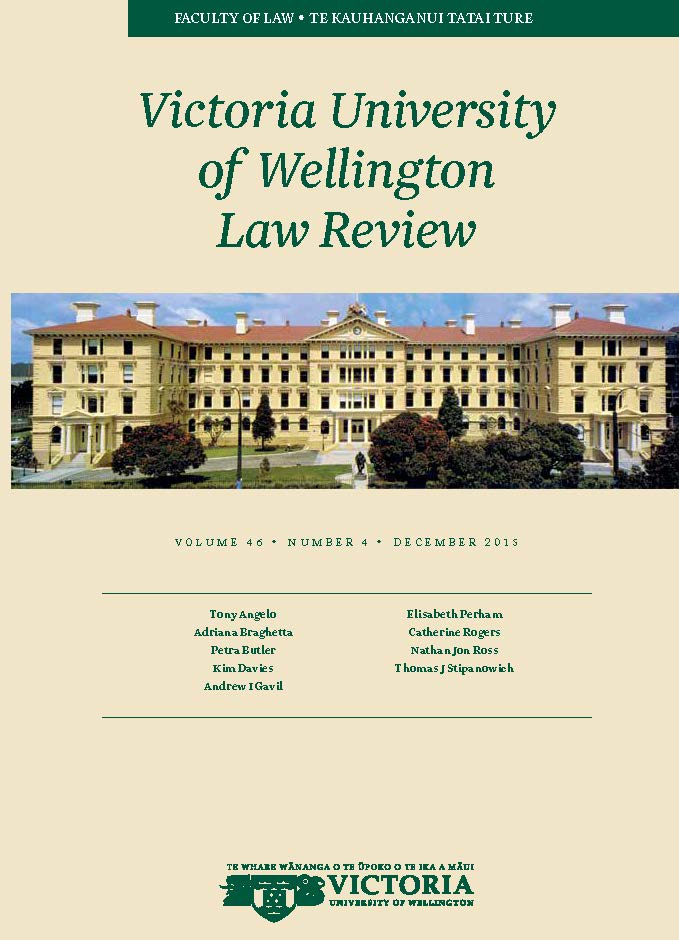Climate Change and the Resource Management Act 1991: A Critique of West Coast ENT Inc v Buller Coal Ltd
DOI:
https://doi.org/10.26686/vuwlr.v46i4.4885Abstract
In West Coast ENT v Buller Coal, the majority of the Supreme Court concluded that the effect of the Resource Management (Energy and Climate Change) Amendment Act 2004 was to remove all considerations of the effects of greenhouse gas emissions on climate change. The plain words of the amendment provisions only removed such considerations in relation to air discharge and coastal permits. However, a literal interpretation of those provisions permitted "back door" regulation via ancillary consents of other classes, such as land use consents. The Court concluded, therefore, that to avoid that outcome, the purpose of the Amendment Act must have been to remove all considerations of emissions and the drafters must have only envisaged that those considerations would be relative to air discharge permits. This article re-examines the effect of the 2004 Amendment Act in light of its purpose and legislative history, and in light of the Principal Act's purpose and scheme. It concludes that Parliament was seeking only to remove consideration of emissions that were anticipated to be regulated nationally. It identifies a nuanced method of using the scheme of the Act to allow that purpose to function whilst avoiding the risk of "back door" regulation. This article also critiques the extent to which the majority's interpretation expands and alters the meaning of the plain words of the Amendment Act's provisions.
Downloads
Downloads
Published
How to Cite
Issue
Section
License
Authors retain copyright in their work published in the Victoria University of Wellington Law Review.


